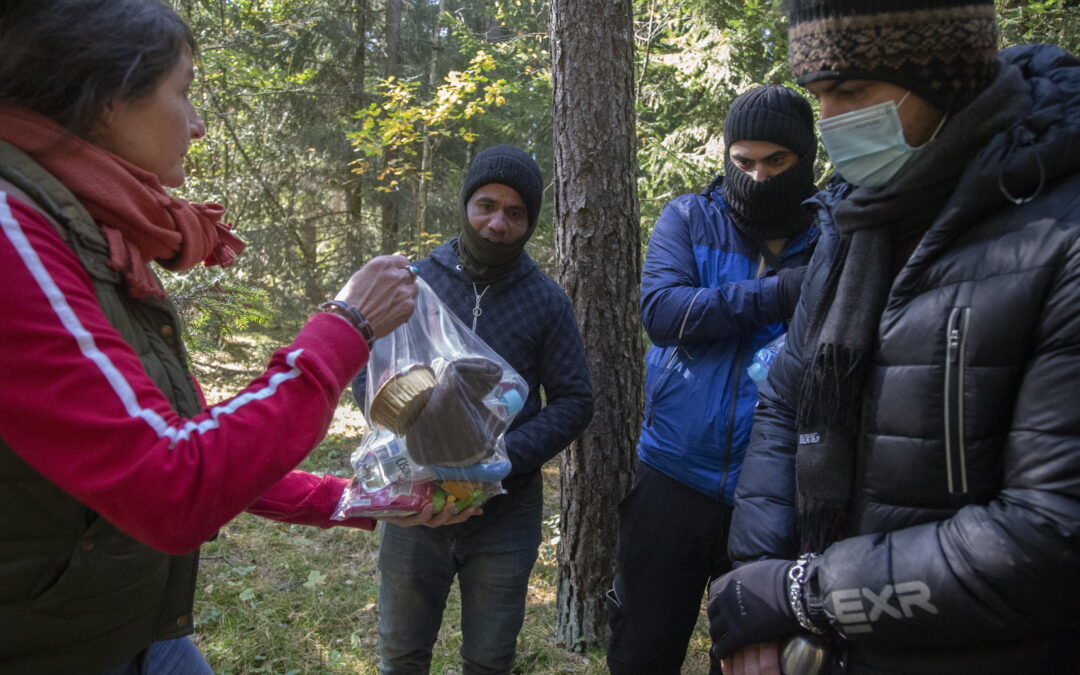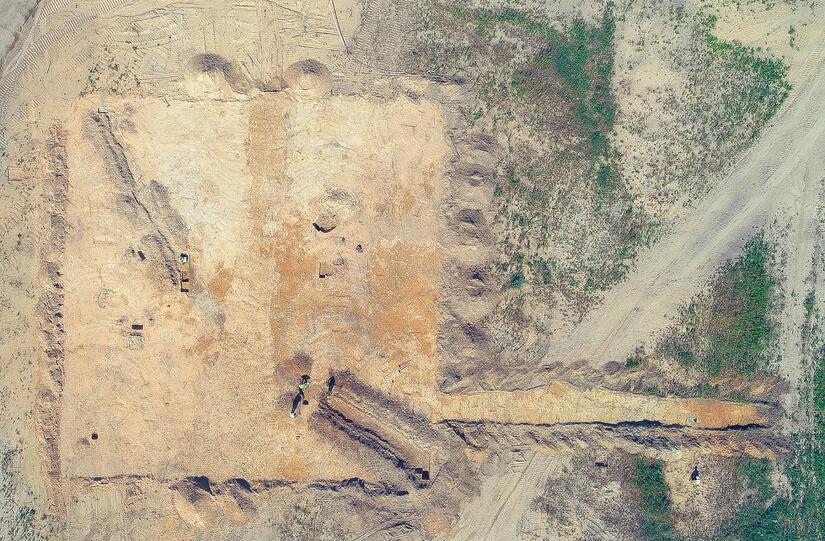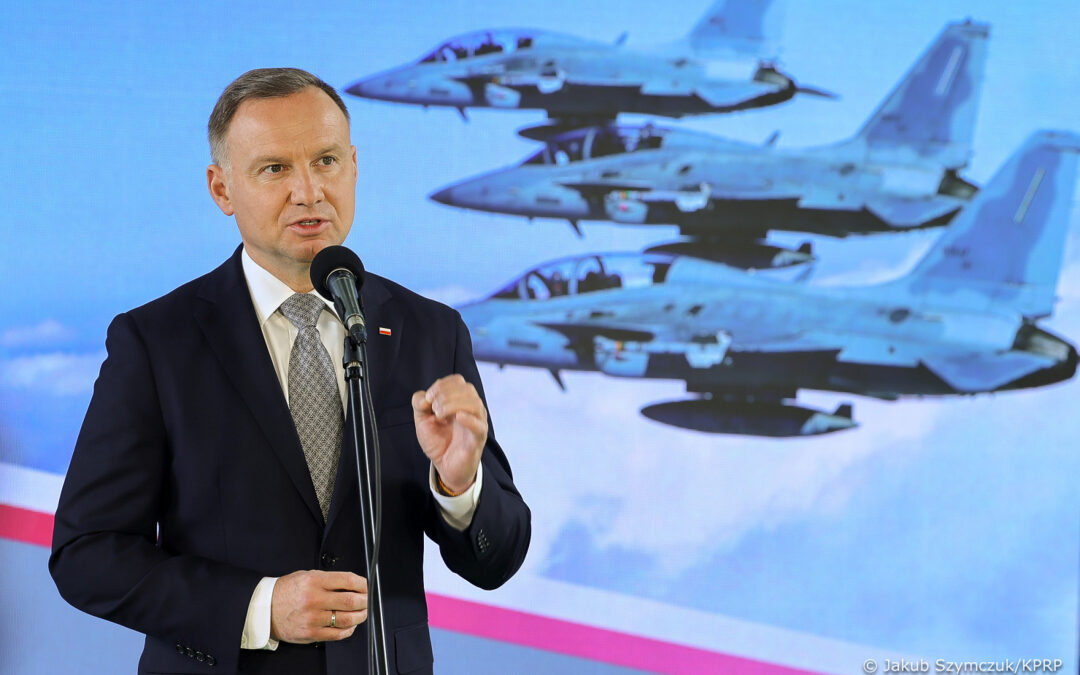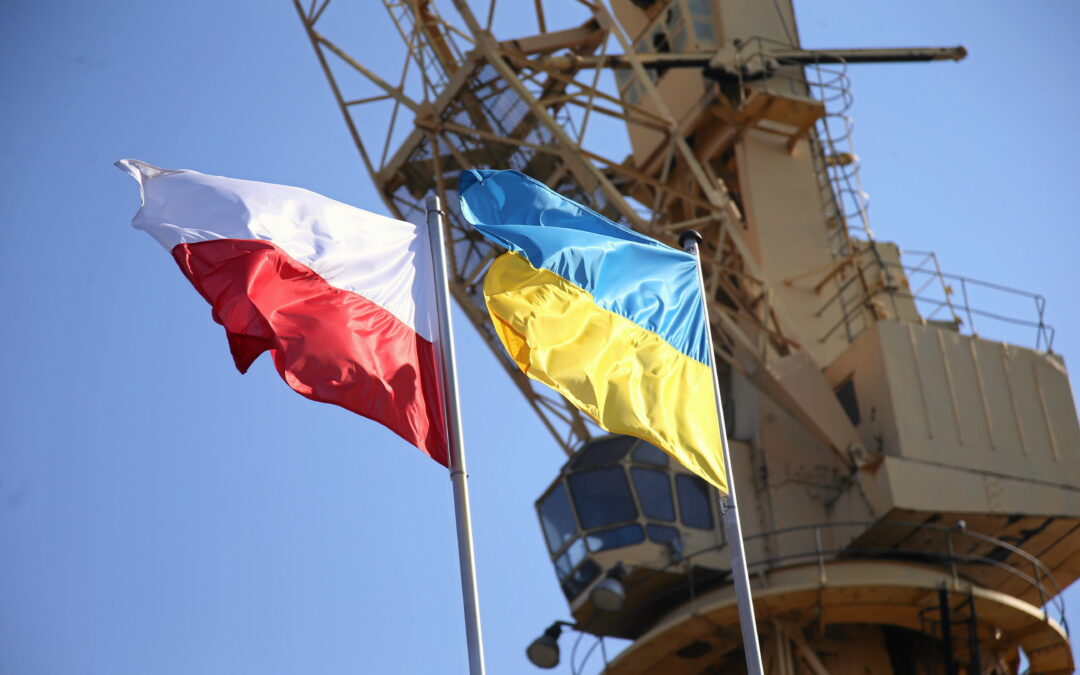By Shannon Listopad
The border crisis with Belarus that began last year, which has seen tens of thousands of migrants and refugees trying to enter Poland, prompted a mobilisation by civil society, with NGOs and grassroots groups seeking to support those who had crossed and later help them integrate into Polish society.
The world’s attention has been gripped by the refugee crisis caused by Russia’s invasion of Ukraine. Of the over 3 million who have so far fled Ukraine, around two thirds have crossed into Poland, whose people have won international praise for opening their doors – often literally – to the new arrivals.
While Polish state, provincial, and local authorities have provided resources and helped coordinate efforts, much of the burden has fallen on civil society. NGOs, informal networks and individuals have rallied to offer accommodation, food, services, and an array of other support to the refugees.
The scale and nature of the Polish response has – like the refugee influx itself – been unprecedented. But last year also saw parts of Polish society rally to react to another migration crisis, albeit in very different circumstances.
Since last summer, tens of thousands of people – mostly from the Middle East – have been attempting to cross the border from Belarus into Poland. Although the numbers slowed as winter arrived, crossings continue.
Yesterday, the Polish border guard noted that it had detained 86 people – including citizens of Yemen, Nigeria and Syria – illegally trying to enter from Belarus. Tough restrictions introduced by the Polish government along the Belarus border last year were recently renewed until at least the end of June.
While the numbers crossing from Belarus are now dwarfed by the ongoing influx of Ukrainians, they were at the time unheard of in Poland. To give a sense of scale, in spring last year, around 100 people per month were trying to enter the European Union from Belarus into Poland, Lithuania and Latvia, notes Grupa Granica, an NGO.
In October – at the peak of the subsequent border crisis – almost 17,500 attempted crossings were recorded by the Polish border guard alone, with nearly 8,000 in September and close to 9,000 in November.
Unlike the current situation, where Ukrainians are entering Poland at official border points, those seeking to cross from Belarus have specifically done so away from official crossings. Their actions have also been orchestrated by the Belarusian authorities, which have helped people reach Minsk by plane, get to the EU border, and try to cross it.
As such, Poland has been seeking to prevent such crossings. Many have been blocked at the border. Those who manage to cross often pass undetected onwards to western Europe. Among those who are caught on Polish territory, some have been controversially pushed back into Belarus, while others have been detained.
The latter group has most often been placed in refugee holding centres while applications for asylum are processed. Last year, Poland received 7,700 such applications, an increase of 175% compared to the previous year and the highest annual figure since 2016.
Yet while the Polish state response to the Belarus border crisis has focused on prevention and containment, parts of Polish civil society have stepped in to do what they can to fill the vacuum by creating and expanding initiatives to help migrants both after they cross the border and as they later seek to reorient themselves to a potential life in Poland – actions that essentially primed them to react quickly to the Ukrainian refugees later on.
Some of these are more formal, often pre-existing organisations, like Grupa Granica (Border Group), Fundacja Ocalenie (Rescue Foundation), Polish Humanitarian Action (PAH), and the Polish Migration Forum. But others have been grassroots efforts that sprang up specifically in response to the crisis.
Meeting basic human needs
Though it has not generally been possible to work directly in the border zone due to the government’s ongoing ban on entry for non-residents, organisations such as PAH have been active nearby, working together with other local groups to provide support on the ground.
PAH set up a base near the border and has been organising basic provisions as well as small items like thermoses, warm clothes, sleeping mats, blankets, power banks, or ready-to-eat meals for the migrants, according to spokesperson Rafał Grzelewski. Some goods are distributed directly, while others are left in easy-to-find spots during forest patrols that look for wandering people in need of aid.
🗨️W Polakach jest bardzo silnie osadzona potrzeba niesienia pomocy. Mam nadzieję, że jako społeczeństwo wyjdziemy z tego kryzysu silniejsi, o ile pozwoli nam się pomagać – mówi o kryzysie na #granica @RafalGrzelewski z PAH w @wirtualnapolska 🔵LINK: https://t.co/2vUIRZFaIp pic.twitter.com/EzNdhEoOZz
— Polska Akcja Humanitarna (PAH) (@PAH_org) November 29, 2021
Zupa na Granicę (Soup to the Border) is one new grassroots group that has also acted quickly to deliver home-cooked meals (including one day where they delivered over 600 litres of soup) organised via Facebook. Growing quickly to over 2,000 members, the group describe their volunteers as helping “with a good word, clean jars, and fresh carrots”.
Once detained, border crossers are granted legal status to stay, and released from closed detention centres, it can be difficult for them to find a place to live in Poland.
A number of programmes have been set up in response to this challenge, including Witaj w domu (Welcome Home) and Refugees Welcome Polska, both affiliated with Fundacja Ocalenie, where refugees are partnered up with local volunteers to help them find a room or apartment and sign an agreement to stay.
Właśnie 2500 słoików zup wyjeżdża w rejon przygraniczny. "Zupa na Granicę" to inicjatywa Beaty Zalewskiej-Stefaniak. Transporty zup jeżdżą regularnie. Serce rośnie, widząc taką mobilizację i solidarność! pic.twitter.com/8ZVGoIOuPs
— Rodziny Bez Granic / Families Without Borders (@RBezGranic) November 9, 2021
Helping with legal issues
When a person is safely in Poland and their basic needs are met, the next big challenge comes in legalising their stay. Fundacja Ocalenie also helps here, actively providing migrants with legal aid. In 2020 alone – before the Belarus border crisis – it provided 1,384 free legal consultations for foreigners.
Last year, the group expanded these efforts by opening a temporary office near the border that not only provides legal aid to refugees, but also monitors the situation, informs the public, and advocates for an end to what they describe as a humanitarian crisis.
Other prominent organisations providing pro bono legal aid to foreigners include the Association for Legal Intervention and Polish Migration Forum. According to the former, which collaborates with Grupa Granica, at least 5,000 people from Iraq, Syria, Afghanistan, Yemen, Iran and Somalia sought legal help between the start of the crisis last summer and 11 November alone.
Od początku #kryzysnagranicy do 11.11 z prośbą o pomoc do @GrupaGranica zgłosiło się min 5000 osób. Analizując dane @Straz_Graniczna za 08 – 11. 2021 szacujemy: na 30,000 prób przekroczenia granicy, polskie służby dopuściły się 27500 wywózek na #Białoruś https://t.co/3gLUU15B75 pic.twitter.com/7oNVzt5gYb
— Grupa Granica (@GrupaGranica) December 1, 2021
Connecting to social and psychological resources
Finding ways to adapt and connect to society can also prove challenging, as migrants often suffer psychological trauma along their path to reaching Poland. Help is available in various forms, from the assistance of trained therapists to integration events and outreach programmes.
“We try to respond to the needs of the people with whom we are in contact,” says Aleksandra Kochanowska of Polish Migration Forum, who notes that psychological diagnosis can also be helpful in applying for international protection.
Her foundation hired two additional psychologists devoted to working with translation in response to the migrants crossing from Belarus, as well as translators to help offer mental health support in several languages and thereby reach as many people as possible.
The group also offers Polish language classes and cultural workshops with partners such as the Linguae Mundi foundation to help newcomers better integrate into society.
When it comes to finding a place in the community though, sometimes it is the smaller initiatives that can really bring people together. The Open Bicycle Workshop (Otwarty Warsztat Rowerowy) group, for example, organises events to help repair bicycles for migrants and refugees.
The group also collects donated bikes, which they deliver to migrant reception centres as a part of a “bikes for welcome” programme they organise with Chlebem i Solą and Polish Hospitality Foundation.
People also come together to celebrate and create works of art. The Strefa WolnoSłowa (FreeSpeech Zone) foundation has created MIGRART, a platform presenting the profiles and works of migrants living in Warsaw, to connect creatives and allow them to share their experiences via cultural works and to showcase their art.
In a similar vein, the Rhythm for Refugees event in Krakow, led by the Rethinking Refugees group, is a charity concert featuring musicians from Poland, Romania, Hungary, Portugal, Turkey, and Brazil living in Krakow to support families who had recently come over the border from Belarus. The organisation describes the event as a “huge success”, with tickets fully sold out and the donation deadline extended to gather further funds.
Moving forwards
Kochanowska emphasises that anyone and everyone can lend a hand in at least some small way, although she urges people to first check what exactly is needed, because “otherwise you can make it more difficult instead of helping”. She suggests writing to NGOs and refugee centres asking how to help, and also making donations to groups providing support to arrivals.
Speaking to Notes from Poland before the outbreak of war in Ukraine, Grzelewski was optimistic:
The [Belarus border] migration crisis is a situation that divides society in a very harsh way, but from the perspective of almost 30 years of PAH’s activity, we know that there is a “culture of giving” present in Polish society. This need to help and the willingness to show solidarity is very strongly rooted in Poles…I hope that as a society we will emerge stronger from this crisis – but only if we are allowed to help the migrants in need.
The subsequent influx of refugees from Ukraine – while it has drawn a very difficult response from Poland’s government than the Belarus border crisis – has borne out Grzelewski’s words, with an outpouring of support for refugees from Polish civil society.
Main image credit: Agnieszka Sadowska/ Agencja Wyborcza.pl

Shannon Listopad is a contributing editorial assistant at Notes from Poland. With degrees from the University of Wisconsin-Madison and Jagiellonian University, she has experience in market research and data insights and has contributed to publications and studies including the European Union EUROMEC project.



















